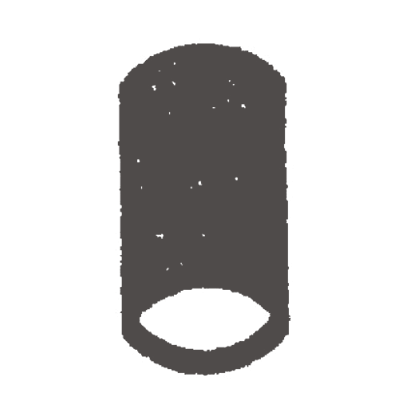Control of foreign investments—upcoming changes
In May 2025 a bill to amend the Control of Certain Investments Act was published on the website of Poland’s Government Legislative Centre. The proponent is the Minister of Economic Development and Technology. The bill is not extensive (containing only four articles), but would introduce significant changes for the future.

Foreign investment controls: The “foreign investor” test and “protected entity” test in the EU and the UK
Foreign direct investment contributes to the growth of the economies where foreign money is invested, but can also undesirably interfere with resources of strategic importance to the functioning of the host country. In difficult times, security issues come to the fore at the national and EU levels, and protectionist tendencies rise. In recent years, the best example is implementation of regulations on control of FDI in the laws of various European countries (as reflected in the latest update to the procedural guidelines issued by the Polish competition authority).

Price reductions under CJEU scrutiny: What does the new judgment change for consumers and retailers?
On 26 September 2024, the Court of Justice issued a major ruling on consumer protection in the context of presentation of product prices and use of discounts in advertising campaigns. The judgment in C-330/23, Aldi Süd, will be crucial for businesses operating in the EU, including Poland.

Notification of foreign joint ventures: A new approach by the Polish regulator to the effects doctrine and notification of extraterritorial concentrations?
On 25 October 2024, Poland’s Office of Competition and Consumer Protection (UOKiK) published updated guidelines on the criteria and procedure for notification of intended concentrations. This is the first change to the guidelines since they were published in 2015. The most important change is a more liberal interpretation of the effects doctrine (extraterritoriality), which is expected to reduce the number of foreign concentrations subject to notification in Poland.

Disclaimers in consumer promotions: How to avoid a fine from the regulator
Poland’s Office of Competition and Consumer Protection often accuses businesses of using misleading advertising content, violating consumers’ collective interests. This can attract a fines of up to 10% of the company’s annual turnover. One reason for fines can be improper wording or appearance of disclaimers.

Control of foreign investments in Poland: The competition authority’s current procedural guidance
On 9 May 2024, the Office of Competition and Consumer Protection (UOKiK) published updated guidance on notifications to the regulator and conducting proceedings under the Control of Certain Foreign Investments Act. The amended provisions of the act, which significantly expanded the scope of its application, entered into force almost four years ago, in July 2020. At that time, the regulator was granted additional powers to protect Polish companies deemed vital for public order, security or health (as we discussed in the article “Control of certain investments: new protective provisions”). The regulator published its first guidance on the new rules in 2022.

The Polish competition authority’s new guidance on antitrust fines
The Office of Competition and Consumer Protection has published new guidelines on the methodology for calculating fines for anticompetitive practices. The main objective is to bring the regulator’s practice into line with the recent amendments to the Competition and Consumer Protection Act, e.g. regarding fines for parent companies and consideration of the adequacy of the fine. But there are other changes as well, and some of them raise concerns.

The Polish competition authority’s plans for 2024
The Office of Competition and Consumer Protection (UOKiK) definitely stands out from other public administrative bodies in the number of interventions it carries out and the decisions it issues, as well as its impact on the behaviour of market participants. The regulator’s activity constantly attracts media and public interest. This makes it particularly worthwhile for businesses to be aware of the regulator’s agenda for this year.

Contractual advantage: Overview of the Polish competition authority’s actions on the agri-food market
Since 2017, Poland’s competition authority has initiated dozens of proceedings for practices unfairly exploiting contractual advantage. As a result, nearly 20 decisions have already been issued, and many notices have been issued to companies. The fines alone have amounted to some PLN 1.1 billion (although appeals against some decisions are pending). To date, the largest fine for unfair exploitation of contractual advantage is over PLN 723 million (assessed against Jerónimo Martins Polska SA in 2020). What practices is the regulator seeking to identify and punish?

Control of concentrations of undertakings receiving foreign subsidies: New powers of the European Commission
In recent years, new EU legislation has appeared addressing the influence of third countries on proper functioning of the internal market, including a mechanism for examination and control by the Commission of subsidies granted by third countries for planned economic activity in the EU of publicly or privately owned undertakings. The new rules also involve control of concentrations within the EU.

The Polish competition authority’s plans for 2023
Under the statutory powers vested in the president of the Office of Competition and Consumer Protection (UOKiK), the regulator deals with issues including competition protection, contractual advantage, control of concentrations and investments, payment gridlock, and consumer protection. The activity plan for 2023 developed by UOKiK shows the areas considered key for this year.

Greenwashing: How to communicate without misleading?
In the face of the climate crisis, the interest in sustainability issues is growing. This increasingly brings the issue of greenwashing to the fore. “Greenwashing” refers to creation of a false impression among the public regarding the supposedly green practices applied by a business or the environmental benefits of its goods and services. Typically greenwashing is used to raise the attractiveness of goods or services in the eyes of prospective buyers, and thus to increase sales and attract customers. But sometimes the spread of misleading ecological messages is simply due to ignorance.
